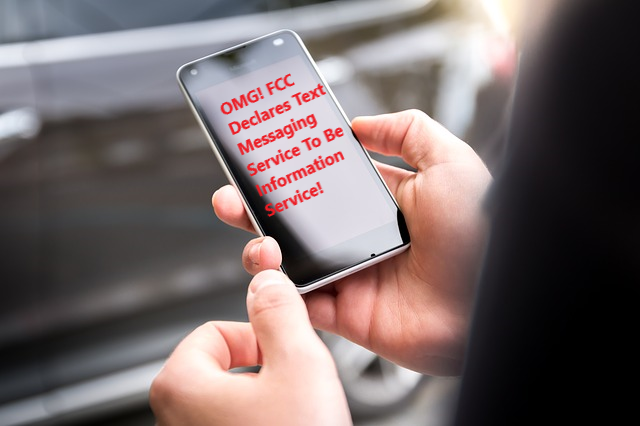An update on news from June 2019.
All tagged USFContribution
American Cable Association Wants FCC To Revise USF Contributions Rules For VoIP Providers
In comments filed in response to the FCC’s 2018 Biennial Review of Telecommunications Regulations, the American Cable Association has urged the FCC to modify its universal service fund contributions rules because they are implemented in such a manner that is unfair to smaller communications providers. Among other things, ACA wants the FCC to revise downward the VoIP contributions safe harbor so that it more reasonably approximates the actual percentage of VoIP revenues derived from interstate and international services.
FCC To Declare Text Messaging Service A Title I Information Service
At its December 12, 2018, open meeting, the Federal Communications Commission will classify text messaging service as a Title I service under the Communications Act. The FCC’s Declaratory Ruling will undoubtedly have a negative impact on universal service fund contributions.
(Draft) Order Forbearing From USF Contributions Will Level The Playing Field (Somewhat) For RLEC Broadband Service
The Federal Communications Commission has released a draft version of an order that grants a petition requesting the FCC forbear from applying universal service fund contribution rules to broadband Internet access transmission services provided by rural local exchange carriers. NTCA—The Rural Broadband Association and US Telecom filed the joint forbearance petition in June 2017. The forbearance provided in the order eliminates the current disparate treatment of certain RLEC broadband providers under the FCC’s USF contribution rules.
NTCA and US Telecom Seek Forbearance of USF Contributions for RLEC Broadband Internet Access Transmission Services
NTCA—The Rural Broadband Association and US Telecom have filed a joint petition requesting temporary forbearance from the application of universal service fund contribution rules to broadband Internet access transmission services provided by rural local exchange carriers. The two broadband associations are seeking forbearance pending the completion of comprehensive USF contributions reform.
FCC Issues FNPRM On Reforming USF Contributions
The FCC has released of a Further Notice of Proposed Rulemaking asking for stakeholder input on whether the existing USF contributions system should be modified or whether it should be replaced with an entirely new system. The FCC wants responses, input, proposals, and detailed data from all USF stakeholders, including contributors, potential contributors, individual consumers, business consumers, consumer advocacy groups, and state and Tribal governments.





